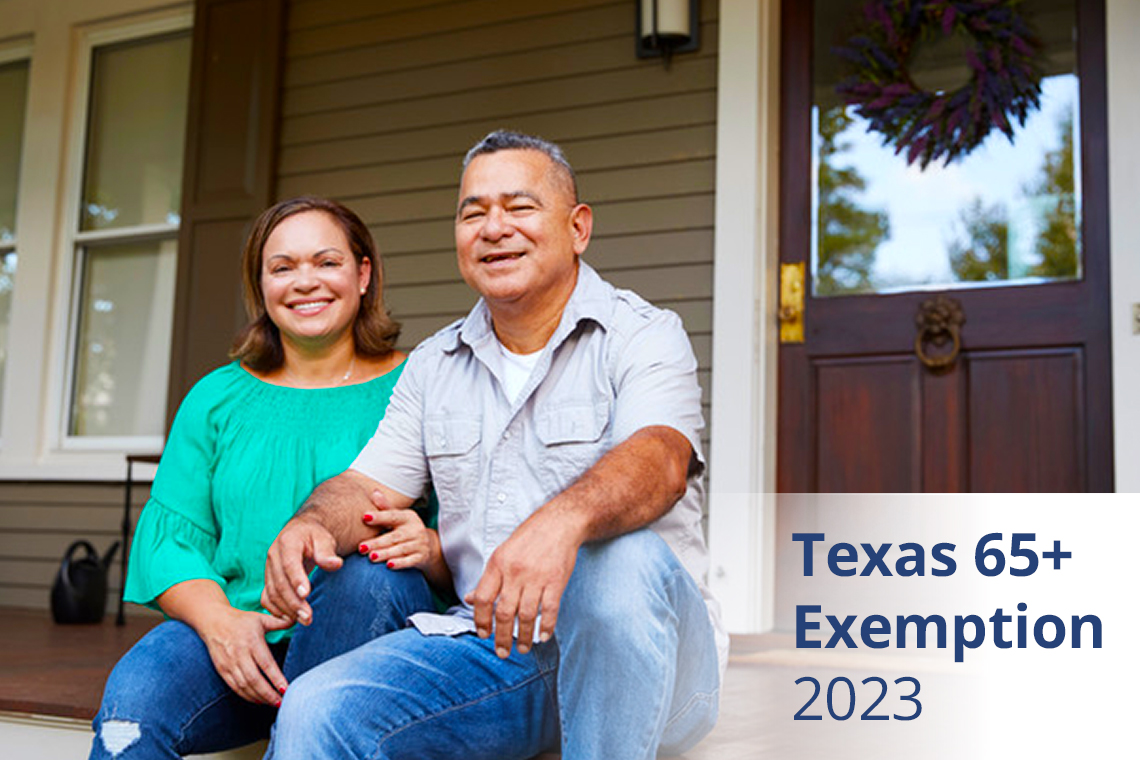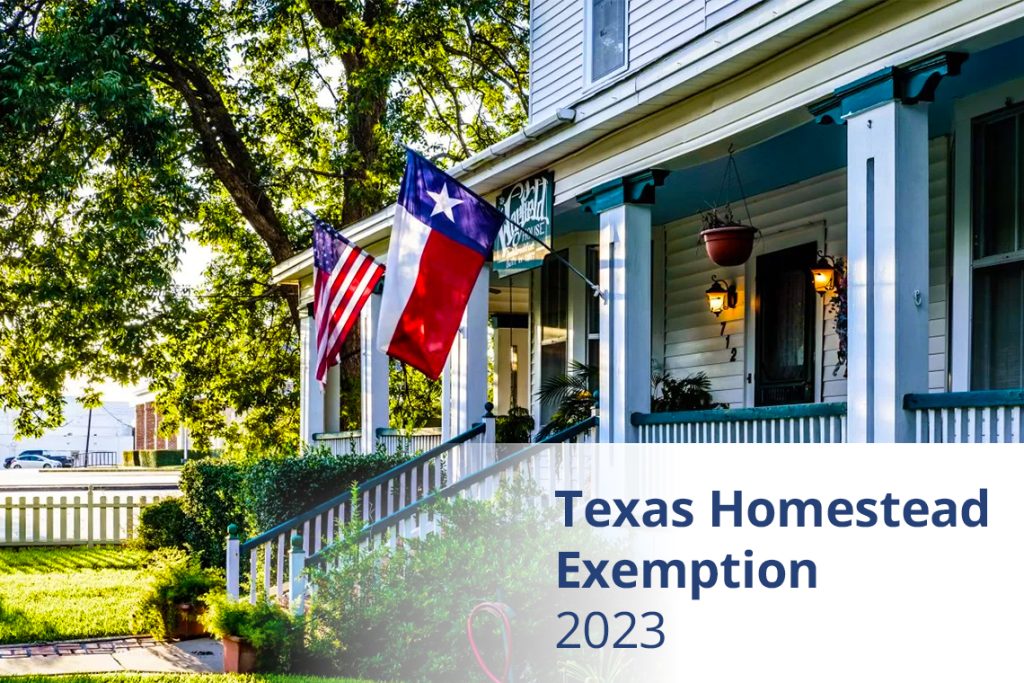How Does the 65 Plus Homestead Exemption Benefit You?

Here’s what you need to know about homestead exemption benefits for homeowners aged 65 plus:
- Homestead exemptions can help Texas homeowners save thousands annually on property taxes.
- Homeowners aged 65 and older are eligible for more benefits, including an additional exemption and a “frozen” school tax ceiling.
- File your 65-plus application by April 30 of the tax year you want the exemption to begin.
- The expert advisors at Gill, Denson, & Company are here to help lower your tax bill even further by protesting your property valuation.
What Is a Texas Homestead Exemption?
Texas homeowners can save thousands annually on property taxes by applying for a homestead exemption, which protects a percentage of property value from taxation. To be eligible, you must own and use the property as your primary residence as of January 1 of the applicable tax year. You must also declare you don’t have homestead exemption claims on another property, in or out of Texas.
65 Plus Exemption Benefits
There’s a common myth that homeowners over 65 don’t have to pay property taxes at all. That’s false, but there are ways to lower your property tax bill through additional exemptions. Homestead owners of any age may benefit from the standard exemptions, while those aged 65 and older may qualify for more benefits. Overall, your exemption increases substantially, and the largest portion of your tax bill, the school district tax, is frozen.
Eligibility for the 65-plus homestead exemption begins on your 65th birthday. If you purchased a home after 2005 and put your birthdate on a standard homestead application, the exemption is automatic after your birthday. However, it’s best to verify with our team or the appraisal district that the exemption has been properly added.

Standard Exemptions
Public school districts must offer a $100,000 exemption to eligible Texas homestead owners. Counties collecting farm-to-market or flood control taxes must offer a $3,000 exemption. Any local taxing unit may offer an optional exemption from $5,000 to 20% of the homestead value. After the first year, a homestead cap limits appraised value increases to the lesser of the current market value or 10% more than the previous year’s value (plus any improvements).
School & County Taxes
School districts must also provide homeowners aged 65 and older with a $110,000 exemption instead of the standard $100,000 homestead exemption. Any taxing unit, including cities, counties, or schools, may provide an additional exemption, which must be a minimum of $3,000.
Frozen Taxes
Frozen taxes, also called a tax ceiling, apply to homestead owners aged 65 plus once they receive their exemption. School taxes will not increase after you qualify unless you make improvements to your primary homestead residence.
What Happens When You Move?
School taxes are not frozen at the new rate when you move homestead residences, but a percentage of your tax ceiling may transfer. Let’s say you paid 20% of the taxes you would have owed on your previous homestead without the ceiling. Your new tax ceiling will be 20% of the taxes owed on the new residence. Request a transfer certificate from the chief appraiser in the original homestead’s county and submit it with a new exemption application to the new county.
Local option ceilings may transfer only if your new homestead is within the applicable taxing unit.
What Happens When Your Spouse Is Under 65?
The exemption period begins when the first person in a married couple turns 65. In the event of the eligible spouse’s death, the surviving spouse may still be entitled to the school tax ceiling. They must be 55 or older and own and use the homestead as their primary residence on the date of the eligible spouse’s death. The surviving spouse will lose the exemption benefits if the homestead is no longer their primary residence.
How & When to File
File an application with the appraisal district where your property is located by April 30 of the tax year you want to start receiving the exemption. If you miss this deadline, you may file up to 2 years after the delinquency date, typically February 1st. Include a Texas driver’s license or state-issued ID with an address matching the homestead property with your application. Once you’ve received the exemption, you won’t need to reapply again unless a county appraiser notifies you.
If you’re a homeowner aged 65 and older, the friendly professionals at Gill, Denson & Company can help you get the tax breaks you deserve. Reach out today to learn how protesting your property valuation can lower your property tax bill. For more information, go to: gilldenson.com









